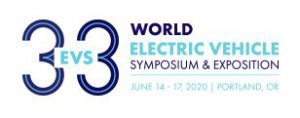Sustainable mobility is a core concern for all industrial players and public authorities. It affects both our lifestyles and our economy, as well as facing major changes, such as electrification, connectivity and driverless vehicles. To prepare for these changes, it is essential to fully understand how new technology will be used in future mobility, together with the related business models and issues surrounding social acceptability.
EVS (Electric Vehicles Symposium) is the leading international event to address all these issues. EVS is organised by AVERE, EDTA and EVAAP, the three members of WEVA (World Electric Vehicle Association). The EVS series rotates between Europe, Asia and America. It all began in 1969 as an academic forum for global networking and the exchange of technical information.
Over these 50 years EVS has grown and developed into an event that is both academic, with over 500 papers being discussed, and business oriented, with several thousand square meters of exposition, ride&drive, etc.
The various components of electric mobility are on display at each edition: from markets to vehicle battery technology (hybrid and hydrogen fuel cell), from motorcycles to trucks, and from charging facilities to related services and public policy.
Nowadays, EVS is recognised as the forum where leading personalities from the electric mobility industry come to speak. The latest editions have included, and the next ones will include, platforms for national, regional and European public decision-makers, who had and will have an opportunity to compare public policy with industrial strategy.
You can find more info about the edition of 2017, EVS30, that took place in Stuttgart, in the video here. One of the key Symposium’s outcomes, The Stuttgart Declaration, which defines the steps needed for the future of electromobility can be downloaded here.







